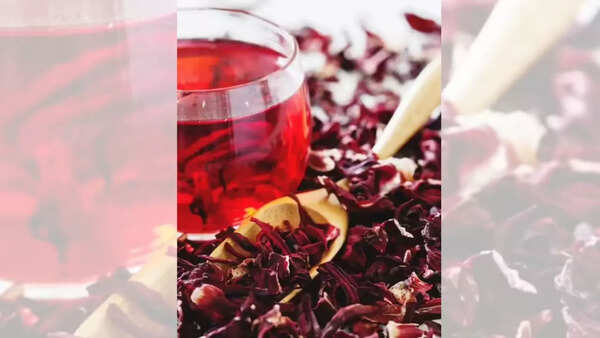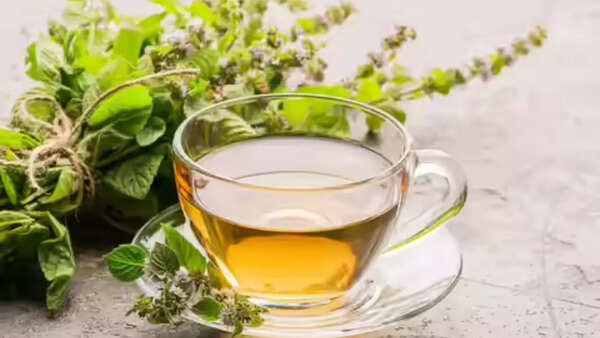Herbal teas, also known as tisanes, are naturally caffeine-free infusions made from herbs, flowers, roots, and spices. These soothing beverages offer a diverse range of flavors and health benefits, making them an ideal choice for daily relaxation and well-being. Unlike traditional teas, herbal teas combine various ingredients known to promote physical and mental health. Enjoyed globally for their distinct tastes and therapeutic properties, they can aid in sleep, digestion, and stress relief.
Here's a guide to some of the best herbal teas to incorporate into your daily routine:

Ginger tea is a powerhouse of antioxidants and a traditional remedy for digestive issues and nausea. It's particularly effective during pregnancy, for motion sickness, or after surgery. Additionally, it may help prevent ulcers, ease indigestion, and alleviate menstrual discomfort. A natural and potent solution for stomach upset, digestive support, and menstrual cramp relief.

This vibrant, tart tea is known for its potential to help lower blood pressure and LDL ("bad") cholesterol levels. Studies suggest it can also reduce oxidative stress, particularly in athletes. Incorporating hibiscus tea may contribute to a healthier cardiovascular system and combat oxidative damage.
Echinacea is celebrated for its immune-boosting capabilities. Drinking Echinacea tea may help shorten the duration and reduce the severity of common colds, making it a valuable addition to your wellness routine, especially during cold and flu season.

This naturally caffeine-free South African tea is rich in antioxidants. Early research indicates it may help inhibit bone loss, potentially preventing osteoporosis, while also contributing to lower blood pressure and improved cholesterol levels. Enjoy rooibos tea for both bone and cardiovascular support.

Peppermint tea is widely recognized for its digestive benefits. It can soothe indigestion, reduce cramps and bloating, and may even provide relief from tension headaches. A refreshing and effective way to support your digestive system.

Chamomile is highly valued for its relaxing properties and is frequently used as a natural sleep aid. In addition to promoting better sleep, it possesses antibacterial, anti-inflammatory, and liver-protective qualities. Chamomile tea may also help stabilize blood sugar levels and ease premenstrual syndrome (PMS) symptoms.

Lemon balm is known for its calming effects, which can help reduce stress, encourage relaxation, and support healthy digestion. Enjoy a cup of lemon balm tea to soothe both your mind and your digestive system.

With its floral aroma and flavor, lavender tea is a popular choice for promoting relaxation, improving sleep quality, and reducing anxiety. It also offers mild anti-inflammatory benefits. Make lavender tea a part of your evening routine for a calmer mind and more restful sleep.

Sage tea offers a combination of antimicrobial and antioxidant benefits. It can help soothe sore throats, improve cognitive function, and potentially alleviate menopausal symptoms. This multi-faceted herb supports throat health, brain function, and hormonal balance.

Dandelion tea supports liver health, aids digestion, acts as a mild diuretic, and provides essential vitamins A, C, and K, as well as minerals like calcium and potassium. This tea is a great way to support overall wellness and detoxification.
By incorporating these herbal teas into your daily routine, you can take a proactive step towards improved health and well-being. Enjoy the diverse flavors and reap the numerous benefits these natural infusions have to offer.
Newer articles
Older articles
 Greg Chappell Hails Rishabh Pant's "Revolutionary" Batting, Likens Him to Gilchrist
Greg Chappell Hails Rishabh Pant's "Revolutionary" Batting, Likens Him to Gilchrist
 Android Users Face Critical Security Risks: Update Your Devices Now, Warns Government Agency
Android Users Face Critical Security Risks: Update Your Devices Now, Warns Government Agency
 New Zealand Cricket Announces Packed 2025-26 Home Schedule Featuring Australia, England, West Indies & South Africa
New Zealand Cricket Announces Packed 2025-26 Home Schedule Featuring Australia, England, West Indies & South Africa
 Converting JPG to PDF: A Comprehensive Guide for Preserving Image Quality and Ensuring Accessibility
Converting JPG to PDF: A Comprehensive Guide for Preserving Image Quality and Ensuring Accessibility
 Ashada Gupt Navratri 2025: Unveiling Dates, Timings, and Esoteric Significance for Spiritual Seekers
Ashada Gupt Navratri 2025: Unveiling Dates, Timings, and Esoteric Significance for Spiritual Seekers
 Pant Revolutionizing Cricket, Says Chappell: Unconventional Style Redefining the Game
Pant Revolutionizing Cricket, Says Chappell: Unconventional Style Redefining the Game
 Evil Eye: Protective Charm or Portal to Dark Forces? Unpacking the Symbolism, History, and Controversy
Evil Eye: Protective Charm or Portal to Dark Forces? Unpacking the Symbolism, History, and Controversy
 Moto G54 Gets Significant Price Drop in India: Check Out the New Affordable Price Tag
Moto G54 Gets Significant Price Drop in India: Check Out the New Affordable Price Tag
 X Cracks Down: Half a Million Accounts Banned in India Over Policy Violations
X Cracks Down: Half a Million Accounts Banned in India Over Policy Violations
 England's Ben Duckett Hailed as the New Virender Sehwag: Former Coach's Bold Comparison
England's Ben Duckett Hailed as the New Virender Sehwag: Former Coach's Bold Comparison